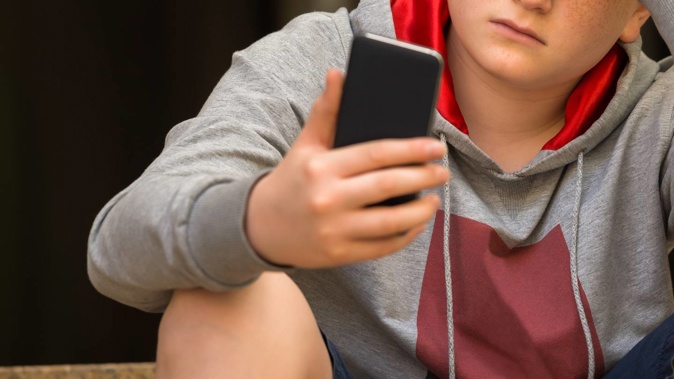
Sharing nude photos is part of everyday life for many young people - with research finding almost four in 10 teens know someone who has shared naked photos or videos.
That research, by internet safety organisation Netsafe, also found that three in 10 teens were aware of another young person who had received content they did not request.
And while sending naked images or videos is a reality for many youth, more needs to be done to help them understand the risks surrounding sending nudes, such as them being distributed in ways the sender didn't intend for.
Netsafe and the Classification Office of New Zealand have launched a new campaign, Bare Facts, to teach young people and their families about what happens to intimate images once they leave their phone and why consent is important.
Chief censor David Shanks says nudes can be expected at certain points of a relationship.
"As one young person told us: 'Relationships have a sort of progression as they go along, and some people might think that sending nudes is a part of that'.
"As media regulators we see a lot of the harms that come from intimate images and we also know that sharing images like this is a reality for our rangatahi."
The campaign is also about sparking open conversations between young people and their whānau, peers and teachers about these issues.
Netsafe and the Classification Office youth facilitator Caitlin Wimsett says parents should talk about consent and digital safety with their kids.
"A lot of the time nudes aren't talked about and the risks aren't that obvious until it's too late. This campaign is important because it highlights those risks and helps young people make informed decisions about what they're doing."
She says it's predominantly young women whose nudes are shared without consent.
Netsafe data shows that between May 2020 and April 2021, 66.6 per cent of image-based sexual abuse reports were made by females.
Reports from under 21-year-olds (of all genders) comprised 44.4 per cent of reports
The campaign addresses how to get help if things don't pan out as intended after sending a nude image.
Netsafe chief executive Martin Cocker says every week the Netsafe team supports people who have sent intimate content to someone who has gone on to share it or widely distribute it.
"If this happens it's important not to shame the person. The initial sharing is often done in a consenting way – and it's the unauthorised on-sharing, or the threat to do so - that causes distress and harm.
"We have working relationships with many online content hosts.
"If someone discovers their image has been shared in a way they do not feel comfortable, Netsafe can explain the options available and work with them to try to remove the content."
Take your Radio, Podcasts and Music with you









